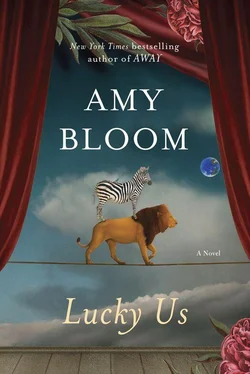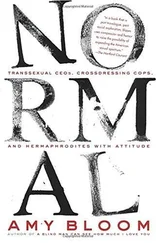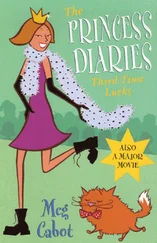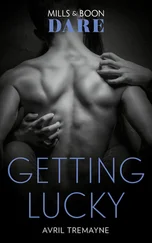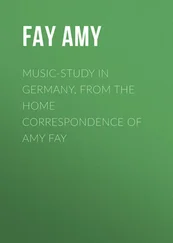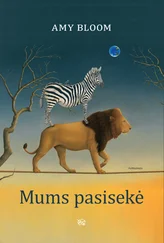7 Dream a Little Dream of Me
WE WERE EARLY. WE STUDIED THE TORELLI HOUSE FROM ACROSS the road, parked underneath a big oak tree. There were no sidewalks and the driveways were so long, the houses were a quarter mile past the stone walls or wrought-iron fences. A big forsythia bush draped over Carnie’s car. My father thought this was good camouflage.
He said, “Mediterranean style. Naturally, they’re Italian. I like the red tile. I imagine there’s a pool.”
Iris said, “It’s like Hollywood. They have houses like this all over Beverly Hills.”
My father said, in his quoting voice, “ ‘They were careless people … they smashed up things and creatures and then retreated back into their … vast carelessness.’ The Great Gatsby. ” Iris got out of the car to smooth her skirt and I got out to help her.
Francisco said, “I don’t think these people are careless. This money, they just got their hands on it. I tell you what, I bet Grandpa Torelli was running a fruit stand when this guy was a baby. Look at it, the bushes, the driveway, that’s a lotta Belgian block. Everything new.”
My father said, “All those in favor of the new and costly?” and Iris and I lifted our hands. We looked and looked at the lovely house, from all angles, trying to see into the rooms. We studied the white balcony on the second floor and the long gray cobblestone drive winding through the sea of green lawn. Francisco sprayed my sister’s hair again and told my father not to wear a hat, and after they disappeared up the driveway, Francisco and I sat back in the shade and played conquian until they came out.
27 Portobello Road
London
January 1947
Dear Evie,
I remember spying on the Torellis through the forsythia. Francisco did my hair in a chignon.
I thought the Torellis were very sweet people from day one. (Well, Joe Torelli looked like he’d been loading trucks all day. He smelled like provolone and he did love his family. I think I’ve just written everything I ever knew about Joe Torelli.) I remember the twins, Catherine and Mary, and the little boy, Joey, and Baby Paulie. The baby was known, pretty much, as The Baby, and he was not my responsibility. You probably liked him.
Mrs. Torelli answered the door. Edgar introduced us and came up with some impressive horseshit about his experience and mine, and he offered dignified silences, and barely stifled sounds of admiration for the furniture (big, dark) and the views (long, green). He offered his letters of reference and mine and I did everything he did, because my experience at MGM was not for naught. He put his hands behind his back and slid over to a big picture window. I slid right behind him. We watched the Long Island Sound while Mrs. Torelli read our letters (written in a beautiful script by Francisco) and then handed them back. Mrs. Torelli indicated that butler was maybe not the exact word one would use, that maybe the Torelli household did not really require someone of Edgar’s stature. Edgar was unfazed. He was gracious. Majordomo, he suggested. One might, he said, do whatever driving is required for Mr. Torelli and the family, and serve on more formal occasions, and run the household in a general way. Mrs. Torelli was not a poker player. She beamed. She wondered what they would be calling him and Edgar said that Acton would suit him fine. Mrs. Torelli tried out Mr. Acton and Edgar stiffened, fractionally. Just Acton is suitable, madame, he said, and put his hands behind his back. She was wisely reprimanded, happily forgiven, in thrall. Between you and Edgar, I’m surprised I ever got on the stage at all. Mrs. Torelli was not formal, and not used to being rich, but she was European and she understood class differences, even if she’d been mostly on the short end of them before. This move to Great Neck was as much of a leap for them as it was for us.
We were never anything except Miss Iris and Mrs. Torelli. She’d gathered the children around her in an Old World tableau in the vast burgundy living room. The two girls were round and pretty in navy-and-white sailor dresses, with black curls heaped up and down, and Joey was a stick of dynamite in navy shorts and a vest and a half-done bow tie. The baby was in a domed lacy bassinette fit for a little prince.
“The girls start school next year,” Mrs. Torelli said. “I’m not gonna bother with the kindy-garden. They’ll start first grade. I want them to be … they need to be …”
“Prepared,” I said.
She nodded and put her hands on Catherine’s (or Mary’s) hair. We were in business.
I felt bad that I was selling her this shoddy bill of goods, myself, when what she wanted was the best for her girls, so that the other girls, whose mamas were slim and blond-streaked and casual in their shirtwaists and Cadillacs, would play with her Cathy and her Mary. She walked us through the house and I made the same kinds of noises Edgar did. There was nothing not to like. The kitchen was fit for a good restaurant, with miles of marble and a pair of bright-yellow refrigerators. It was a sun shower. Very cheerful, madame, Edgar said, and Mrs. Torelli said whatever she said and I said nothing because Reenie walked in then, holding a bag of groceries, and I thought I would pass out.
Do you remember how she looked? I don’t think we ever talked about how she looked. If she were a man, I would have said to you, What a dreamboat, what a catch. You don’t say to your little sister, Oh my God, isn’t the Torellis’ cook the sexiest thing you’ve ever seen? Isn’t she a dish, with that wide Madonna forehead and big eyes and big red mouth, everything wonderfully big and nothing too much? And even an infidel like me could see she had the soul of a saint, all goodness. No, you don’t say that. And I know you didn’t see in her what I saw.
I hope I never love anyone again.
Hoping to hear from you,
Iris

WE MOVED INTO THE CARRIAGE HOUSE, ALSO KNOWN AS OVER-the-garage. The Torellis had two cars, a black Cadillac and a black Lincoln. We settled ourselves and it wasn’t really that different from back in Ohio, except the carriage-house living room was smaller, the food was better, and we didn’t have a piano. I was apparently never going back to school, and I had a pool to swim in when the Torellis weren’t home. My father and my sister went to work on the other side of the swimming pool every day and I stayed out of the way, or went to Brooklyn to visit Bea, Carnie, and Francisco, who now had three apartments in the same building, and Bea and Carnie still had invisible husbands. Four days a week, I got myself to East Brooklyn (I could do it in my sleep: bus to the subway station, train to Flushing, subway to Gates Avenue station, turn left, and walk six blocks to Bea and Carnie’s salon, La Bella Donna). For fifty cents a day, I swept up hair, folded towels, cleaned the bathroom, and made lunch for Bea and Carnie and me. Bea was teaching me to shampoo (Don’t pull, never rub, use your finger pads), and the ladies liked the feeling of my small hands. Carnie introduced me as a niece and they told everyone, like my father had told the Torellis, that I was a genius, and a little small for my age and had already graduated high school at just fifteen. No one asked why a genius like me was the maid-of-all-sorts at a beauty parlor. I took notes about hair color and eyebrows, matching lips and tips, and beauty parlor rules. (You do not say, Hey, your roots are showing. You say, Maybe a little touch-up. You don’t say, Holy Mother of God, what happened to you? You say, Maybe Evie could get you a cuppa tea or a Coke.) I worked my way through Charles Dickens and I kept up with Photoplay. I walked past the orphanage, on my breaks, watching for the tall blond boy.
Читать дальше
